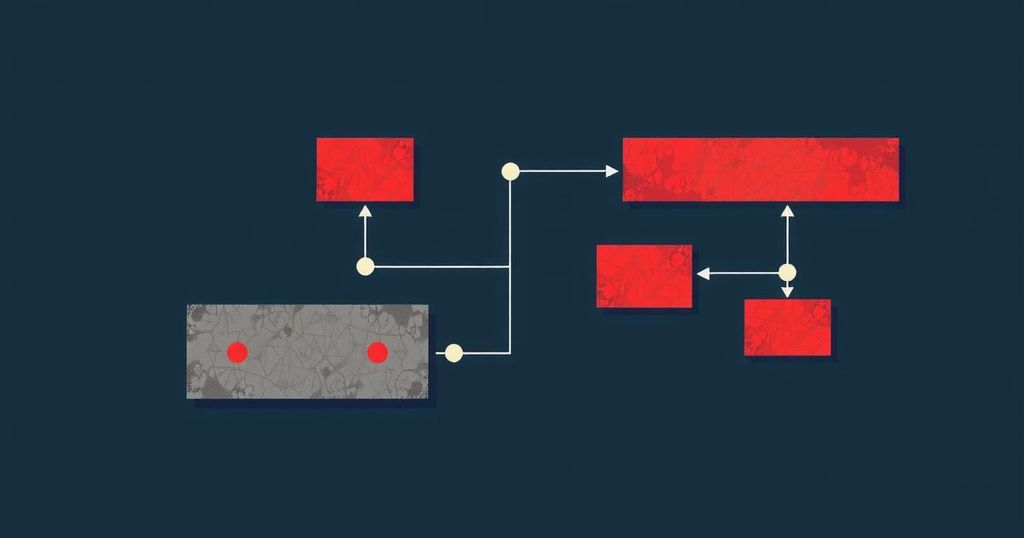U.S. foreign aid cuts threaten the flow of information about human rights abuses in Iran amid a government crackdown. Iranian human rights organizations are forced to scale back operations, raising concerns of increased repression. The freeze has implications for monitoring human rights and supporting civil liberties advocates as economic crises deepen and arrests rise.
Iranian human rights groups and activists have expressed serious concerns regarding the recent cuts to U.S. foreign aid, fearing that these actions will severely restrict the flow of information regarding human rights violations in Iran. The crackdown on dissent by the Iranian government has intensified, creating a dire environment for journalism and activism.
On January 20, President Donald Trump executed an executive order that halted all American foreign aid through the State Department and USAID for a period of three months. This decision reportedly stemmed from concerns that U.S. foreign assistance was misaligned with national interests and counter to American values.
The cessation of funding has drastically affected Iran, as the government has been aggressively repressing journalists and civil society entities. Consequently, many Iranian human rights organizations operating abroad have been compelled to reduce their activities, thereby limiting their capacity to address human rights abuses in Iran and support civil liberties advocates.
Amid a worsening economic situation in Iran, characterized by a sharp decline in the value of the rial, the government has also increased arrests, raising alarms among activists regarding impending repression. Ali Vaez, Iran project director for the International Crisis Group, emphasized that without visibility into human rights violations, perpetrators feel emboldened.
U.S. organizations dedicated to monitoring Iran’s human rights conditions, including media outlets and civil societal initiatives, rely on funding from the State Department’s Near East Regional Democracy Fund (NERD), created post-2009 Iranian protests. The Biden administration has requested $65 million for this fund in 2024, including $16.75 million specifically for internet freedom.
Iranian officials have capitalized on the aid freeze, with Esmail Baghaei, spokesperson for Iran’s foreign ministry, asserting that U.S. funding symbolizes an interventionist policy aimed at undermining Iranian sovereignty. Furthermore, Sanam Vakil from Chatham House noted that such funding has been perceived as a national security threat by Iranian leadership.
Security forces have intensified their targeting of critical voices since recent political disappointments. A notable victim of this repression is actress Soheila Golestani, who faces imprisonment and lashes for her role in a film reflecting on social issues and protests stemming from the death of Mahsa Amini.
In summary, U.S. aid cuts have significantly hampered the capabilities of human rights organizations in Iran, corresponding with a government crackdown on dissent. This move threatens vital information dissemination concerning human rights violations as economic distress persists. The situation is exacerbated by increasing government repression and public advocacy suppression, raising urgent concerns among human rights activists. The broader implications of U.S. policy on Iranian society reveal a complex interplay between international interests and domestic governance.
Original Source: www.newarab.com






